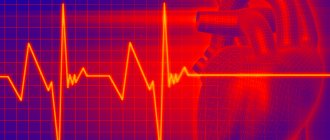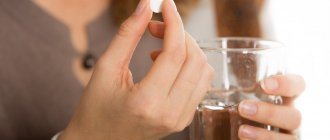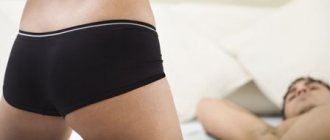The menstrual cycle is a complex process that accompanies a woman from puberty to menopause. During menstruation and shortly before it, a woman experiences both psychological and physical discomfort. In particular, frequent urination before and during menstruation.
The human body is a balanced system that regulates the functioning of all organs and controls all processes autonomously. And if any pathologies arise, a “signal” is immediately received in the form of unpleasant symptoms that are outside the normal range.
Urination is one of the processes of excretion of waste products. It is impossible to say exactly what the norm should be. It all depends on the individual characteristics of the person. If a woman visits the toilet up to 6-8 times a day, this figure is considered normal. But everything can change in the premenstrual period and during menstruation.
Often, representatives of the fair sex feel an increased urge to urinate. What is this connected with and when can such a process indicate pathological processes occurring in the body?
Main reasons
If it becomes painful to go to the toilet during your period, you should pay attention to the peculiarities of your well-being, highlighting all the details. This will come in handy later when talking with your doctor. Pain during urination and defecation in women is associated with various processes. The list of the most common reasons includes the following:
- Changes in hormonal levels. At the beginning of critical days, the level of progesterone decreases, and at the same time the uterus begins to contract strongly. The bladder and urethra, located near the genital organs, react to balance fluctuations, causing problems with urination: natural causes provoke increased diuresis, increased sensitivity of the mucous membrane. Some women literally feel the movement of urine droplets along the ureters, which seems incredible. With a low pain threshold, discomfort is quite difficult to bear, since the urinary system has many nerve endings. The malaise subsides quickly and independently after the end of menstruation.
- Urological diseases. Nephritis, urethritis and cystitis are the most common reasons why it hurts to go to the toilet during menstruation. However, the disease is not necessarily in an acute form. The chronic process is asymptomatic in most cases. If a woman has ever suffered from cystitis, and her bladder hurts during menstruation, the problem may be a latent and periodically worsening inflammation.
- Venereal infections. Trichomoniasis, gonorrhea, ureaplasmosis, chlamydia and many other STDs become apparent during menstruation, since the immune defense weakens at this time, the microflora of the genitourinary organs changes, and the body is most vulnerable. Clinical signs of many sexually transmitted infections are severe burning and pain during diuresis.
- Candidiasis, bacterial vaginosis. Very often, these diseases occur in a chronic or latent form; under the influence of hormone fluctuations during menstruation, pathogenic microorganisms affect the urinary organs.
- Inflammation and tumors of the rectum. Problems with defecation in women are also more likely to worsen during menstrual periods. Contraction of smooth muscles provokes a violation of venous outflow and leads to exacerbation of existing hemorrhoids, swelling of polypous nodes, burning, and bleeding.
Whether the pain is a consequence of increased sensitivity or another cause is difficult to determine on your own. Confirmation of your guesses can be obtained from a gynecologist, infectious disease specialist or urologist.
Measures to prevent cystitis during menstruation
Prevention of cystitis in women during menstruation includes the following recommendations:
- It is forbidden to use tampons: filling with liquid and increasing in volume, they can increase pain and contribute to blood stagnation;
- it is necessary to change pads and shower more often;
- You cannot wear thongs or synthetic underwear;
- hypothermia should not be allowed;
- it is necessary to exclude sexual contacts;
- in order to prevent possible allergic reactions, you need to carefully choose hygiene products;
- it is important to strengthen the immune system, consume more vitamins, and follow the necessary diet;
- It is necessary to avoid stagnation of urine, that is, completely empty the bladder as soon as the need arises.
It hurts to walk small
Exacerbation of a urological inflammatory disease during menstruation is manifested by sharp painful sensations directly during urination. Cystitis is accompanied by frequent false urges, sometimes every 10–15 minutes, the amount of urine decreases, it may contain impurities of blood or pus, and there is incessant, lingering pain in the bladder.
Sometimes pain when urinating during menstruation occurs not against the background of an exacerbation of chronic cystitis, but as a consequence of sluggish dysbiosis and the penetration of conditionally pathogenic vaginal microflora into the urethra: fungi, staphylococci, streptococci. Kidney pathologies and urolithiasis cause heaviness in the lumbar region, and when a stone passes, there is a sharp tearing pain that does not subside at rest. Urethritis is especially pronounced during diuresis: the process causes a strong burning sensation of the irritated mucosa, which usually subsides after the passage of urine.
Pain during urination occurs during menstruation as a symptom of trichomoniasis, less often - gonorrhea or other STDs. The urine may still appear normal. Often, physical discomfort is complemented by severe itching in the vagina, changes in discharge: it becomes more abundant, foamy and dark. A characteristic sign of a venereal inflammatory process in the genitals is the persistence of leucorrhoea and, after the end of menstruation, a strong putrid odor.
In severe cases, painful manifestations are accompanied by dizziness, increased body temperature, and aching joints and muscles.
Prevention
The development of pathologies that cause pain, burning and itching when urinating can be prevented. To do this, women and girls, regardless of age, just need to follow the advice of experts. Namely:
- Take good care of your genitals and follow the rules of hygiene.
- Wear high-quality underwear made from natural materials.
- Use contraception during sex, avoid casual relationships, and do not change partners frequently.
- It is advisable to buy personal hygiene products (pads, tampons) without fragrances.
- Eat sour and spicy foods, smoked foods, fatty foods less often, and do not eat too many sweets.
The most important thing is to visit a gynecologist at least twice a year. Read more and study information that will allow you to easily maintain women's health and beauty not for a week or a month, but for entire decades.
It hurts to walk big
The period of menstruation is a time when most women need to go to the toilet much more often than usual. This is explained by the effect of hormones on the smooth muscles of almost all abdominal organs. The muscle fibers of the intestinal walls contract more intensely than usual, causing increased peristalsis. If the intestines are healthy, this feature of the body is manifested only by more frequent bowel movements. But with digestive disorders, activation of the organ often results in pain. Feces that are too dense, moving forward, can injure the mucous membrane and cause irritation. Symptoms intensify with a habitual tendency to constipation. The pain is quite severe, occurs during each bowel movement, then a slight burning sensation is felt in the rectal area.
Intestinal dysbiosis is also one of the common consequences of menstrual periods. Violation of the internal microflora leads to bloating, flatulence, colic before each bowel movement. The stool becomes looser and foul-smelling, and diarrhea may occur.
After menstruation, due to excessive stress, flushing, and disturbances in the outflow of the rectal veins, inflammatory and destructive processes in the large intestine worsen. A classic example is hemorrhoidal pain. Many patients talk about defecation in such cases: “I feel like I’m being tortured.” Injured internal nodes often react to irritation with painful manifestations and discomfort: tenesmus (false urge to defecate), foreign body sensation, itching, severe burning, cramps, and spasms. Going to the toilet is accompanied by the release of bloody clots from the anus. Some perceive drops of blood on linen or paper as residual effects of menstruation, not associated with intestinal pathology.
When to go to the doctor
The absence of menstruation after treatment of cystitis should be a reason to consult a gynecologist. In addition, the patient may need treatment from a urologist or endocrinologist.
The absence of menstruation after treatment of cystitis should be a reason to consult a gynecologist.
The woman will be prescribed tests and examination, after which the specialist will determine whether the delay is related to the consequences of inflammation and will be able to prescribe additional therapy.
Due to the fact that the disease provokes complications, one cannot ignore the symptoms. Pathology can spread to all organs and cause disruption of their functioning.
Possible complications
Painful urination, which is a consequence of infection in the urethra from the vagina, can lead to numerous complications. Even after the symptoms completely subside, the pathology in the body continues to develop. The consequence of untreated cystitis can be the progression of its interstitial forms, affecting not only the mucous, but also the deep muscular layer of the bladder. It is completely impossible to cure this disease: the destructive process in the initial stages is manifested by severe discomfort, which subsides and intensifies from time to time. Complicated cystitis with careless or inadequate treatment in severe cases can lead to hemorrhagic or gangrenous changes in the bladder tissue and loss of its functions. The development of paracystitis threatens extensive inflammation of the pelvic tissue, peritonitis.
Ascending infection with gonorrhea, ureaplasma, and other microbiological lesions causes cycle disruption, general signs of infection of the genital organs and subsequent salpingoopharitis (adnexitis), disruption of the structure of the ovaries. The consequences are adhesions of the pelvic organs, ectopic pregnancies, and infertility.
Inflammation of hemorrhoids during menstruation can lead to massive blood loss, anemia, the development of rectal fissures, and thrombus formation.
What types of endometriosis are there?
Endometriosis of the uterine body
One type of disease is uterine endometriosis, which affects the walls of the organ. Endometriosis of this localization is also called adenomyosis. The epithelium grows into the muscular layer of the uterus, sometimes endometrial cells penetrate all the way to the serous membrane. This type of disease is characterized by increased blood loss during menstruation, the development of anemia, and a significant increase in pain in the lower abdomen during menstruation. Often, endometriosis of the uterus causes miscarriage or the development of infertility.
How to relieve pain
Almost all disorders in the body that manifest as pain during menstruation require nutritional correction. It is necessary to exclude spicy foods, seasonings, spicy and salty snacks, marinades, smoked meats, coffee, and alcohol from the diet. It is useful to drink more warm liquid: fruit drinks from cranberries, currants, raspberries, cherries, tea from chamomile, St. John's wort, rose hips. For constipation, it is advisable to include vegetable dishes, herbs, and cereals in the menu. If there are no contraindications, therapeutic acupressure can be a good help. If more pain is felt in a sitting position, you should increase physical activity - take walks, avoid prolonged sitting in place. Increasing pain when moving is a signal of the need for rest.
Maintenance therapy
This is the main course that allows you to defeat cystitis during menstruation. Treatment also involves taking auxiliary drugs that promote recovery. These are antispasmodics that relieve pain. Most often prescribed are “No-Shpa” and “Papaverine”. They act symptomatically. Nonsteroidal anti-inflammatory drugs, such as Ibuprofen, are used similarly. In addition to relieving pain symptoms, it has a healing effect.
To prevent dysbiosis, doctors simultaneously prescribe antimicrobial drugs and probiotics. This could be “Hilak Forte”, “Linex”, “Bifiform”. And last on our list, but not least, is herbal medicine. Preparations based on natural medicinal herbs have a diuretic and anti-inflammatory effect. They are available in the form of dry collections and drops. An example is “Cyston”, “Canephron”, “Fitolysin”.
Treatment
Without correct diagnosis, treatment of pain during menstruation cannot be effective. Taking analgesic drugs only suppresses the symptoms for a short time, without eliminating the real cause of the ailment. Detection of pathologies includes blood tests, urine tests, and scrapings from the vaginal mucosa. As a rule, it is necessary to contact the laboratory after critical days. Additionally, the doctor may prescribe ultrasound, computed tomography and other types of instrumental studies.
Treatment of genitourinary infections and many intestinal problems requires the use of antibiotics. Drugs to eliminate the pathogen can be prescribed in the form of a course of injections, vaginal, rectal suppositories or tablets. Maintenance treatment consists of alleviating clinical symptoms, relieving inflammation, and strengthening immune defense. NSAIDs, antispasmodics, vitamin and herbal complexes, and physiotherapy are used. After treatment, follow-up tests are required to confirm recovery.
If a tumor is detected in the organs of the genitourinary system or intestines, the issue of the relevance of surgical intervention is decided.
Diagnosis of cystitis
Cystitis is a disease of the bladder, so diagnosis and treatment is carried out under the supervision of a urologist. But since in women the cause of cystitis is often diseases or pathologies of the genital organs, as well as pregnancy, the patient must also visit a gynecologist. If the cause is hormonal disorders, you will need to consult an endocrinologist.
To establish a diagnosis of cystitis, you must:
- take a general blood test;
- take a urine test;
- do an ultrasound of the kidneys and bladder.
To obtain reliable results and make an accurate diagnosis, blood and urine tests are taken after menstruation.
To exclude infections or inflammation of the genital organs, as well as pregnancy, a gynecologist may conduct the following studies:
- examination of the genitals using a gynecological speculum;
- Ultrasound of the uterus and appendages;
- smear analysis;
- bacteriological examination (bacterial culture) of a smear to determine the sensitivity of bacteria to drugs.
Having made an accurate diagnosis, the doctor will prescribe a course of treatment.
Normalization methods
The treatment regimen is based on the following activities:
- Taking antibiotics. The drug should be used strictly according to the instructions and only after consulting a doctor, because there is a risk of cystitis re-developing after the end of the course of treatment. To prevent the disease from returning, antibiotics are taken again - a month after the initial therapy. Doctors often prefer Furadonin, Ciprofloxacin, Monural and Pefloxacin.
- The use of drugs that relieve inflammation and fight fungus: Canephron and Phytolysin. In addition, these drugs eliminate spasms and have a diuretic effect.
- Taking painkillers for severe pain: Spasmalgona, No-shpa.
- The use of herbal decoctions that have an anti-inflammatory effect. You can treat with chamomile, calendula, St. John's wort, bearberry.
- Douching with chamomile decoctions.
- Therapeutic warming performed in medical institutions under the supervision of a specialist. It should be taken into account that such treatment can aggravate the course of the disease, so it should be treated with caution.
- Regular hygiene procedures: washing with soap or special products for intimate hygiene.
- Taking a complex of vitamins that strengthen the immune system.
To prevent the pathology in question from manifesting itself in a woman during the menstrual cycle, hypothermia should be prevented, pads should be changed frequently, tampons should be avoided, spicy foods should not be consumed, and alcoholic beverages should be avoided. The most important thing is to be regularly examined by a gynecologist and be attentive to the signals of your own body.
Change in menstrual flow
When you contract a urinary tract infection, the pattern of discharge begins to change depending on the cause. When they have a sexually transmitted disease, they develop a pungent odor. At the same time, they are distinguished by their abundance and foaminess. In non-infectious lesions of the body, itching is mild. Symptoms intensify in the evening. In this case, menstruation is painless. In acute cystitis, discharge becomes scarce. In this case, separation of blood clots is observed. The color varies from dark red to brown.









